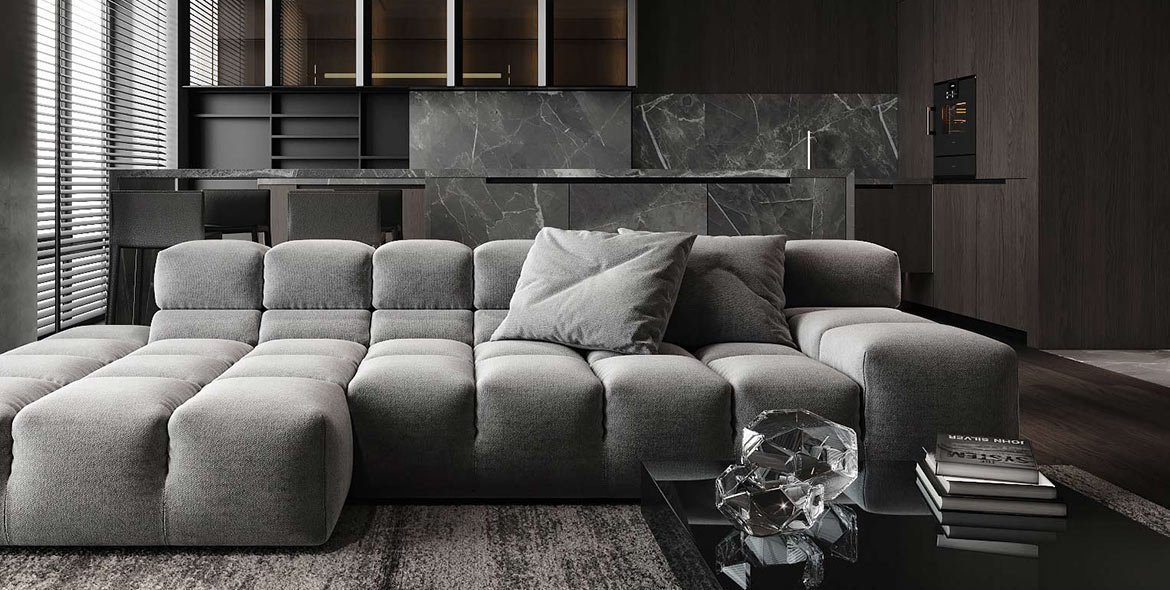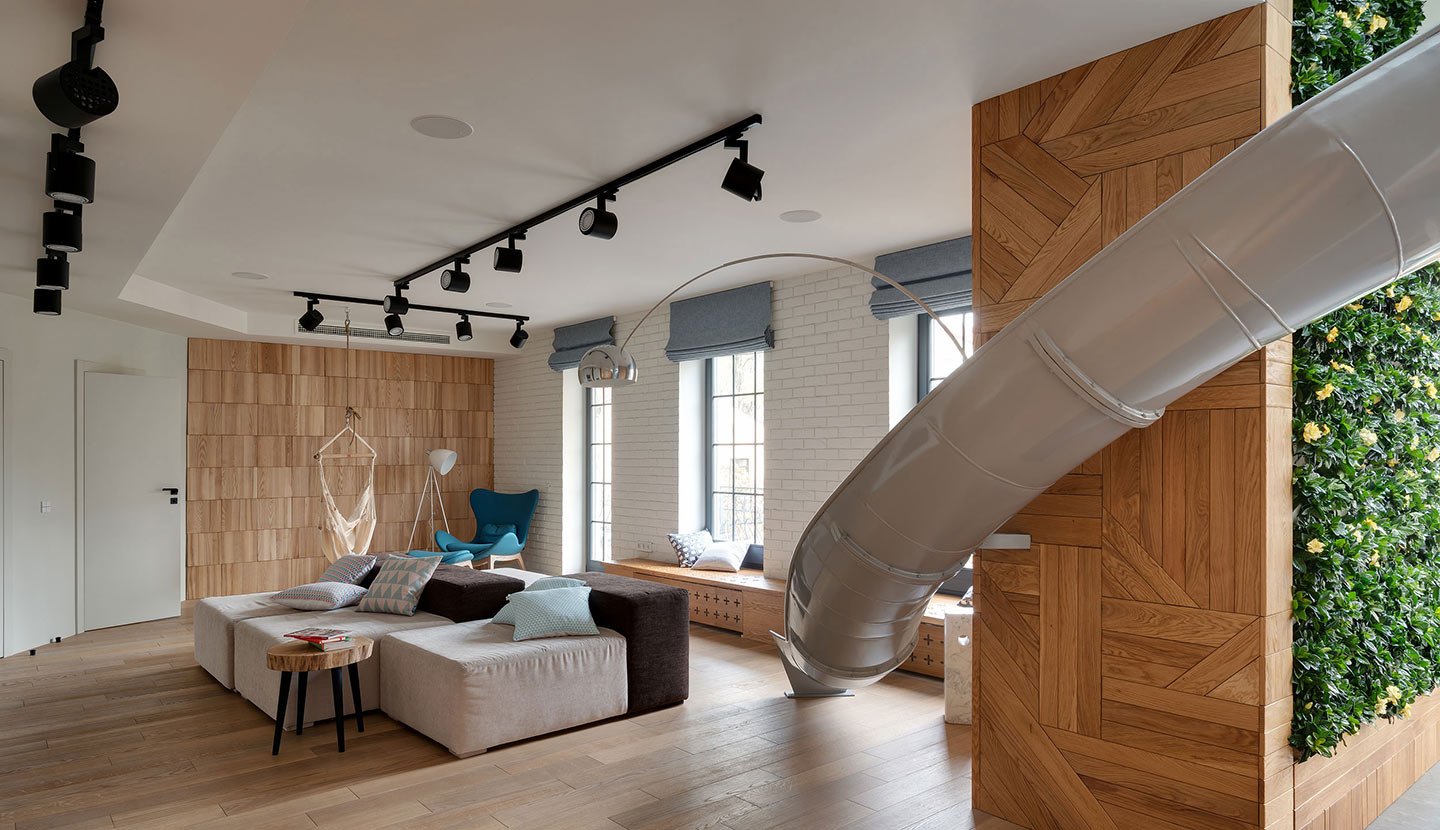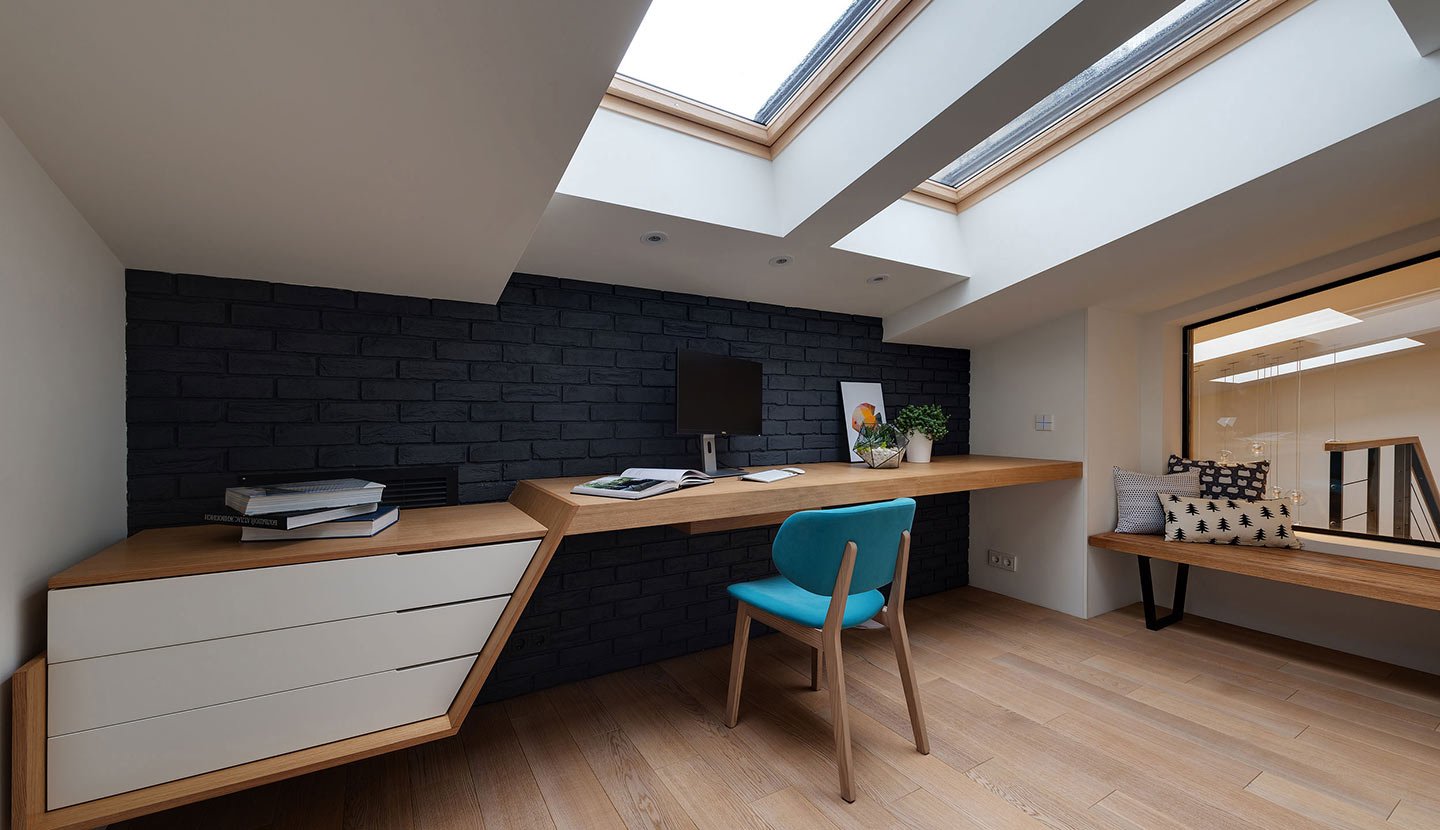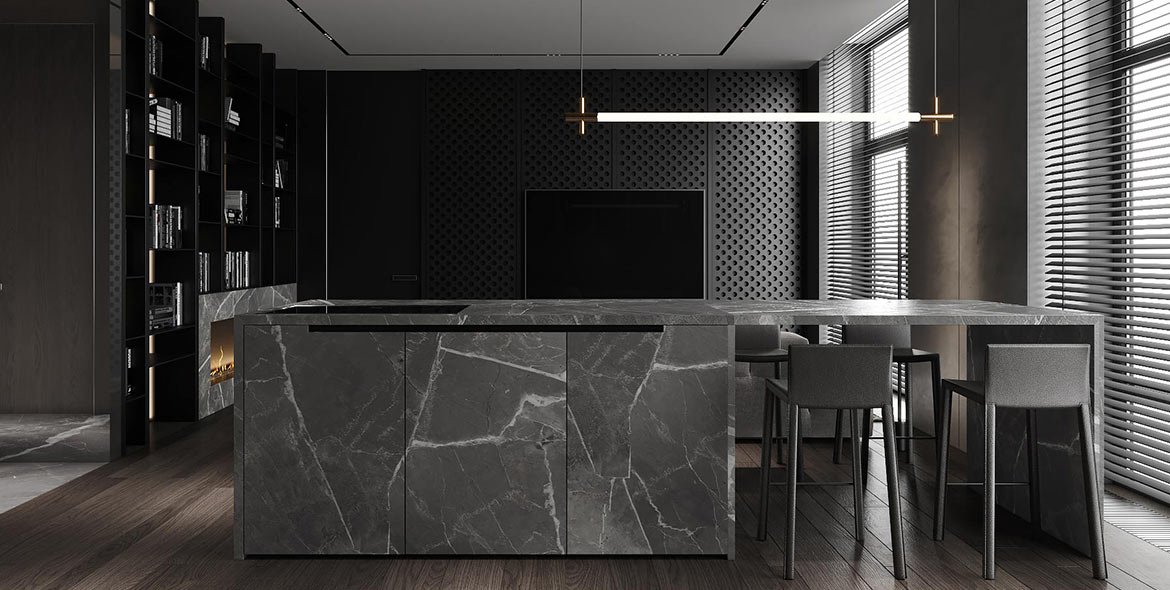Quartz and granite countertops are popular choices for homeowners seeking elegance and durability in kitchens and bathrooms. However, choosing the right material can be a challenge due to their impressive qualities.
Matching the material to your lifestyle and functional requirements is crucial, considering factors like cooking habits, maintenance preferences, and budget.
Understanding the key distinctions between quartz and granite can help you navigate the design landscape, making a selection that complements your vision and elevates your living space.
What is Quartz?
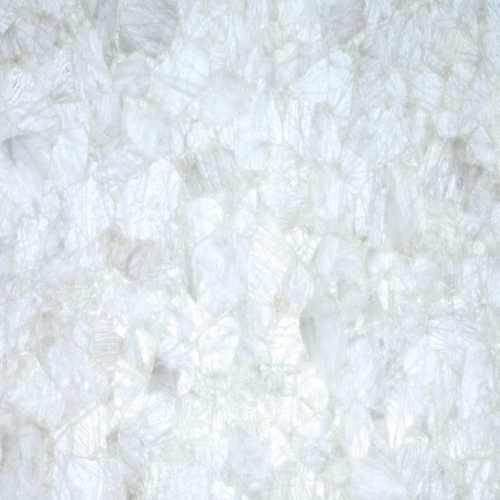

Quartz, a crystalline mineral with a chemical formula of SiO2, is one of the most abundant minerals on Earth. Its hardness and durability make it resistant to scratches and abrasions.
Quartz crystals have a hexagonal prism shape with distinct facets and can be transparent or translucent. Common varieties include amethyst, citrine, rose quartz, and smoky quartz.
Quartz is found in various environments and geological formations, and its unique properties make it widely used in construction, interior design, and electronics.
Engineered quartz countertops, made from crushed quartz crystals combined with resins, mimic the appearance of natural stone. Quartz’s piezoelectric properties make it valuable in electronic devices like watches and clocks.
What is Granite?
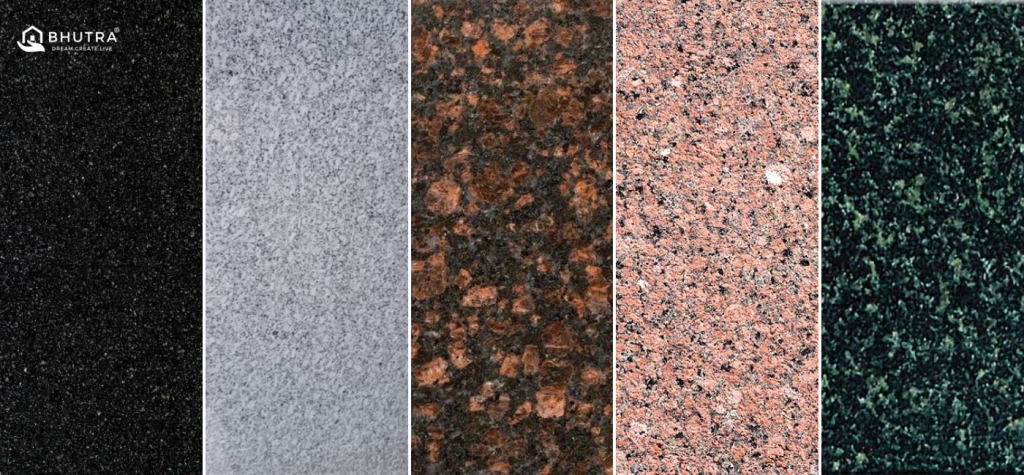
Granite is a natural igneous rock composed mainly of quartz, feldspar, mica, and other minerals. It is formed through the slow crystallization of molten magma beneath the Earth’s surface.
Granite is renowned for its durability, hardness, and distinctive granular texture, making it a popular choice for various construction and decorative purposes.
Key characteristics of granite include:
- Mineral Composition:
- Quartz: Provides hardness and resistance to abrasion.
- Feldspar: Contributes to the rock’s color and forms elongated crystals.
- Mica: Adds a reflective quality and contributes to the rock’s appearance.
- Color and Texture:
- Granite comes in a wide range of colors, including white, gray, pink, red, and black.
- Its granular texture is a result of interlocking mineral crystals, giving it a distinctive speckled or mottled appearance.
- Hardness and Durability:
- Granite is a hard and durable rock, ranking high on the Mohs scale of mineral hardness.
- It is resistant to scratches, heat, and abrasion, making it suitable for various applications, particularly as a countertop material.
- Formation:
- Granite forms deep within the Earth’s crust from the slow cooling and solidification of magma.
- It is typically found in large, intrusive masses called plutons and can be extracted through quarrying for various uses.
- Versatility in Use:
- Due to its durability and aesthetic appeal, granite is commonly used in construction for countertops, flooring, wall cladding, and exterior facades.
- It is also utilized in sculptures, monuments, and decorative features.
- Porosity:
- Granite is generally less porous compared to some other natural stones, but it is not entirely impervious to liquids.
- Proper sealing is often recommended to prevent staining, as some varieties of granite may be more porous than others.
Granite’s unique combination of beauty and strength makes it a sought-after material in both residential and commercial applications. Its natural variations in color and pattern ensure that each piece of granite is distinct, adding a touch of individuality to architectural and design projects.
Difference Between Quartz and Granite
Quartz and granite are two popular materials used for countertops and other applications in construction and design. Here are key differences between quartz and granite:
- Composition:
- Quartz: Engineered stone made from crushed quartz crystals mixed with resins. It is not a solid slab of natural stone but a composite material.
- Granite: Natural igneous rock formed from the slow crystallization of magma, consisting mainly of quartz, feldspar, and mica.
- Appearance:
- Quartz: Uniform and consistent appearance with a wide range of colors and patterns. It can mimic the look of natural stones.
- Granite: Natural variations in color and pattern, giving each slab a unique appearance. It has a distinctive granular texture.
- Durability:
- Quartz: Hard and durable, resistant to scratches, chips, and stains. It does not require sealing.
- Granite: Very hard and durable, resistant to scratches and heat. However, it may require periodic sealing to prevent stains, as it is a porous natural stone.
- Maintenance:
- Quartz: Low maintenance; easy to clean with mild soap and water. Resistant to bacteria and mold growth.
- Granite: Requires periodic sealing to maintain its resistance to stains. Cleaning with a mild detergent is recommended.
- Cost:
- Quartz: Generally more expensive than granite, but prices vary based on brand, quality, and design.
- Granite: Can vary widely in price based on the rarity of the stone, color, and origin. It may be more cost-effective than quartz in some cases.
- Environmental Impact:
- Quartz: The production process involves mining and manufacturing, with potential environmental considerations. Some brands incorporate recycled materials.
- Granite: Quarrying and extraction can have environmental impacts, but some suppliers adhere to sustainable practices. Natural stone is not manufactured, reducing some environmental concerns.
- Versatility:
- Quartz: More flexible in terms of color and pattern consistency. It can be customized during the manufacturing process.
- Granite: Limited to the natural variations within each slab, offering a unique and sometimes unpredictable aesthetic.
When choosing between quartz and granite, considerations such as personal preferences, maintenance preferences, budget, and environmental concerns should be taken into account to make an informed decision based on individual needs and priorities.
Best Uses of Quartz and Granite
Quartz and granite are versatile materials with various applications in construction and design. Here are some of the best uses for each:
Best Uses of Quartz:
- Kitchen Countertops:
- Quartz countertops are popular in kitchens due to their durability, resistance to scratches, and low maintenance.
- Non-porous nature makes them resistant to stains and bacterial growth.
- Bathroom Vanities:
- Quartz is an excellent choice for bathroom vanities, providing a sleek and uniform appearance.
- Its resistance to moisture and easy maintenance make it suitable for bathroom environments.
- Flooring:
- Engineered quartz flooring tiles are available for high-traffic areas, providing a consistent and durable surface.
- The variety of colors and patterns allows for versatile design options.
- Wall Cladding:
- Quartz can be used for wall cladding in kitchens, bathrooms, and other interior spaces, adding a contemporary and stylish touch.
- Customized Furniture:
- Designers often use quartz for customized furniture pieces, such as tables and accent surfaces, due to its versatility in colors and patterns.
- Commercial Spaces:
- Quartz is suitable for commercial applications, including reception desks, restaurant tabletops, and bar counters, where durability and aesthetics are crucial.
Best Uses of Granite:
- Kitchen Countertops:
- Granite countertops are a classic choice for kitchens, offering a natural and unique appearance with a durable surface.
- Resistant to heat, making it suitable for kitchen environments.
- Outdoor Applications:
- Granite’s durability makes it an excellent choice for outdoor applications such as patios, barbecues, and outdoor kitchens.
- Its resistance to weathering ensures longevity in outdoor settings.
- Flooring:
- Granite flooring is commonly used in high-traffic areas, providing a durable and visually appealing surface.
- The natural variations in color and pattern add character to flooring applications.
- Monuments and Sculptures:
- Granite’s longevity and resistance to weathering make it a preferred choice for monuments, statues, and outdoor sculptures.
- Fireplace Surrounds:
- Granite is often used for fireplace surrounds due to its heat resistance and aesthetic appeal.
- It adds a touch of elegance to both traditional and modern fireplace designs.
- Staircases and Steps:
- Granite stairs and steps are durable and can withstand heavy foot traffic, making them suitable for both residential and commercial settings.
- Commercial Spaces:
- Granite is commonly used in upscale commercial spaces, such as hotel lobbies and retail environments, where a luxurious aesthetic is desired.
In short, while quartz is ideal for indoor applications like countertops and vanities, granite shines in both indoor and outdoor settings, offering durability and a natural, distinctive look. The choice between quartz and granite ultimately depends on the specific needs, preferences, and aesthetic goals of a given project.
Price Difference Between Quartz and Granite
The price difference between quartz and granite can vary based on several factors such as quality, brand, location, and the complexity of the installation. Here’s a general overview to provide you with a sense of the cost disparity:
Quartz:
- Average Price Range:
- On average, quartz countertops typically range from INR 70 to INR 500 per square foot.
- Factors Influencing Price:
- Brand and Quality: Premium brands or higher-quality quartz may be at the higher end of the price spectrum.
- Color and Design: Some colors or intricate designs may be more expensive.
- Thickness: Thicker slabs may cost more than thinner ones.
- Installation: Labor costs for installation can contribute to the overall price.
Granite:
- Average Price Range:
- Granite countertops generally range from INR 50 to INR 500 per square foot on average.
- Factors Influencing Price:
- Rareness and Origin: Rare or exotic granite varieties and those sourced from specific regions may command higher prices.
- Color and Pattern: Unique colors and patterns may impact the overall cost.
- Thickness: Similar to quartz, the thickness of the slab can affect the price.
- Installation: Labor costs, including cutting, shaping, and installing, contribute to the total expense.
Additional Considerations:
- Cost of Installation:
- Both quartz and granite require professional installation, and labor costs can vary. Installation costs may include fees for cutting, shaping, and fitting the material.
- Additional Features:
- Edge detailing, custom shapes, and special finishes can add to the overall cost of both quartz and granite countertops.
- Geographic Variation:
- Prices can vary based on geographic location and the availability of materials in a particular region.
- Sealing Costs:
- While quartz doesn’t require sealing, granite may need periodic sealing to prevent stains, and the cost of sealant should be considered.
- Supplier and Fabricator:
- The choice of supplier and fabricator can impact the overall cost. Different suppliers may offer different pricing structures and promotions.
It’s important to note that these are average price ranges, and specific quotes should be obtained from suppliers and fabricators based on your unique project requirements.
Additionally, obtaining multiple quotes and considering long-term durability and maintenance costs can help in making an informed decision based on both immediate and future expenses.
Conclusion
Quartz and granite countertops are popular choices in kitchen and bathroom design due to their blend of elegance and durability. Quartz is ideal for indoor settings due to its resistance to scratches, stains, and bacteria, while granite is versatile for both indoor and outdoor applications.
Quartz’s engineered composition and uniform appearance make it ideal for busy households seeking low-maintenance elegance. However, the choice between quartz and granite depends on personal preferences, project requirements, and budget considerations.
By considering maintenance needs, aesthetic goals, and environmental concerns, homeowners can choose the perfect material to elevate their living spaces.


